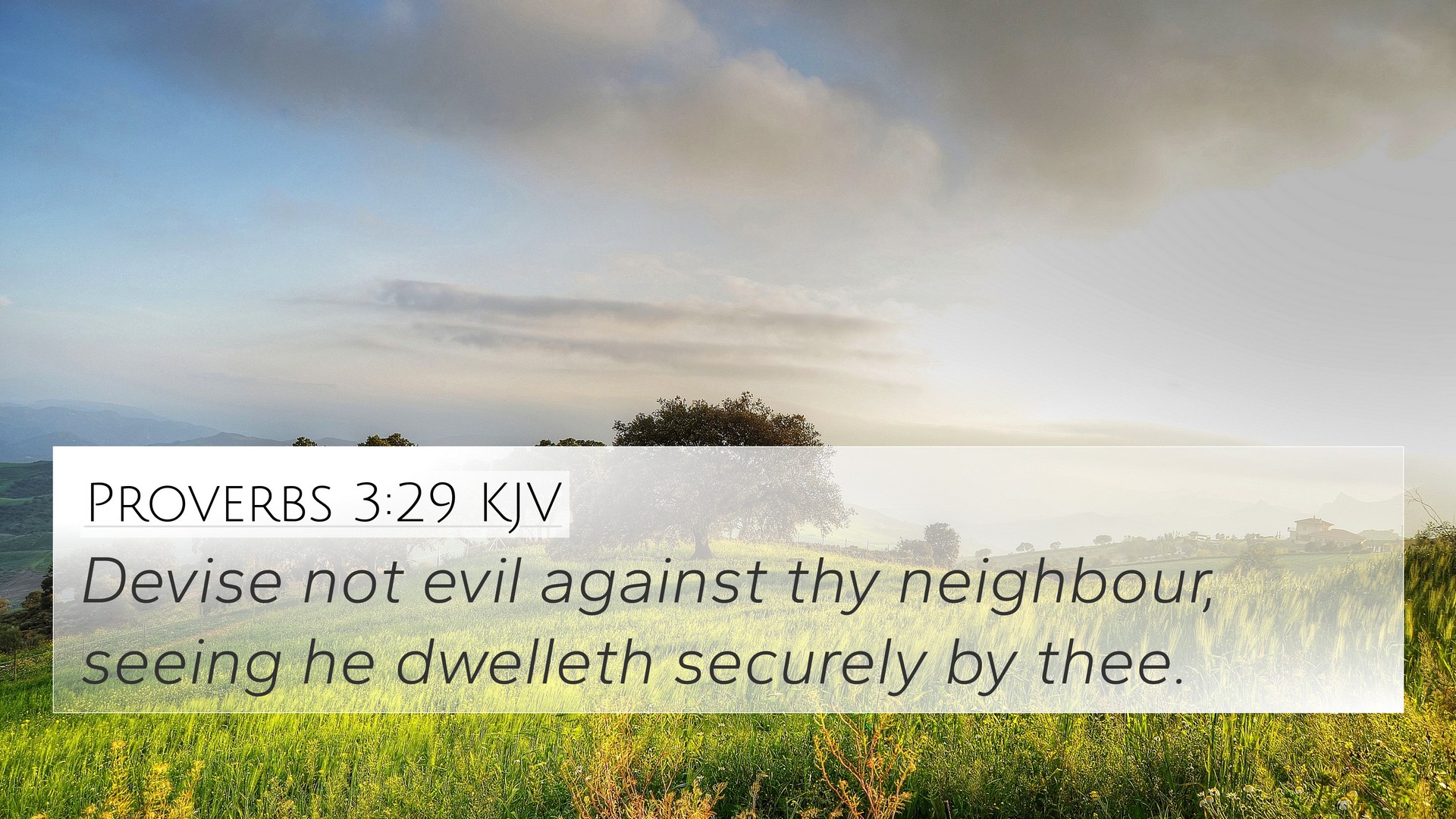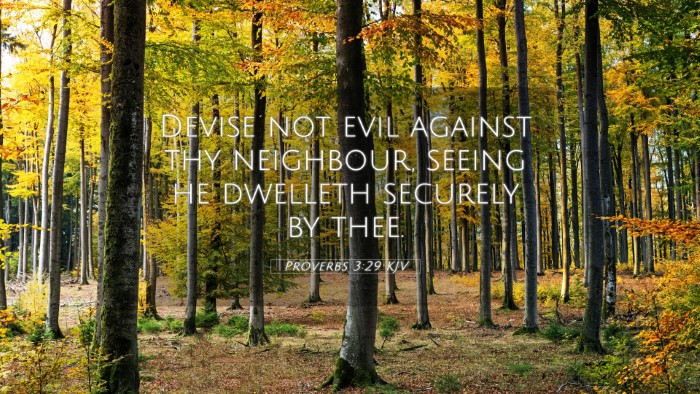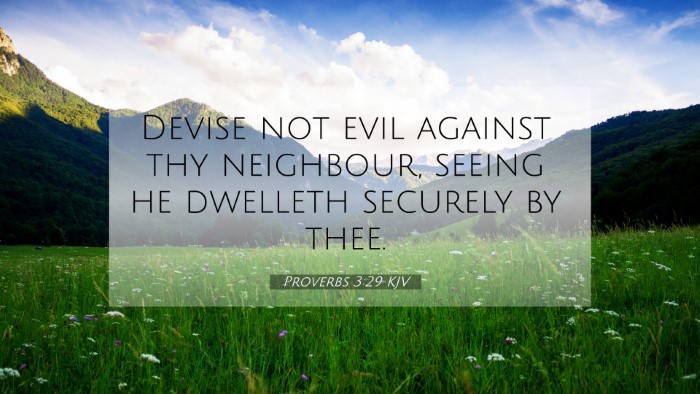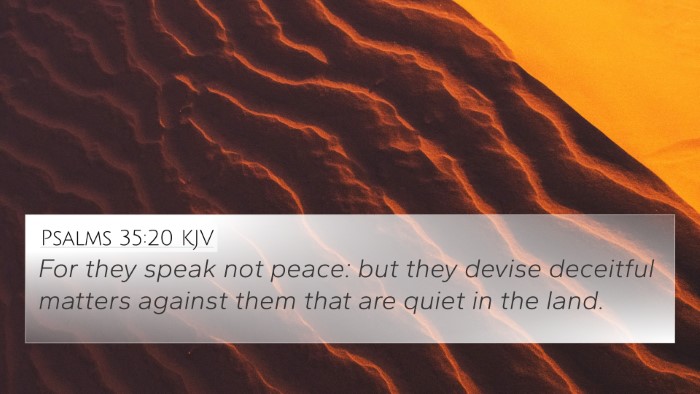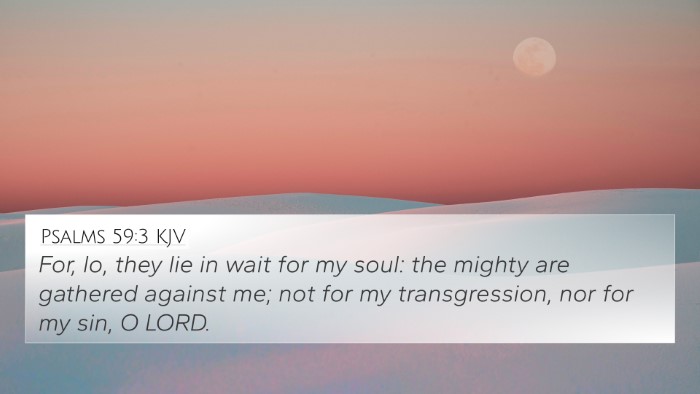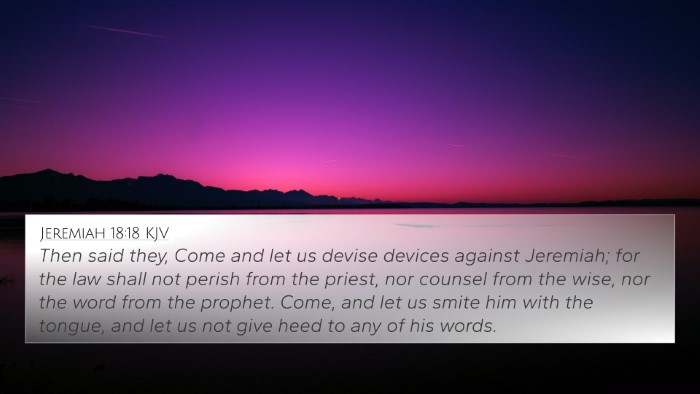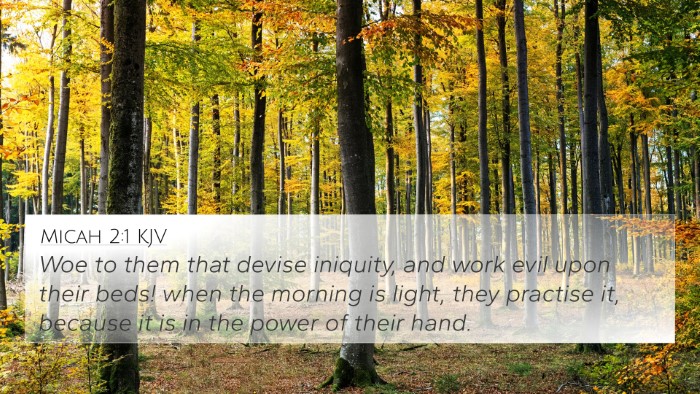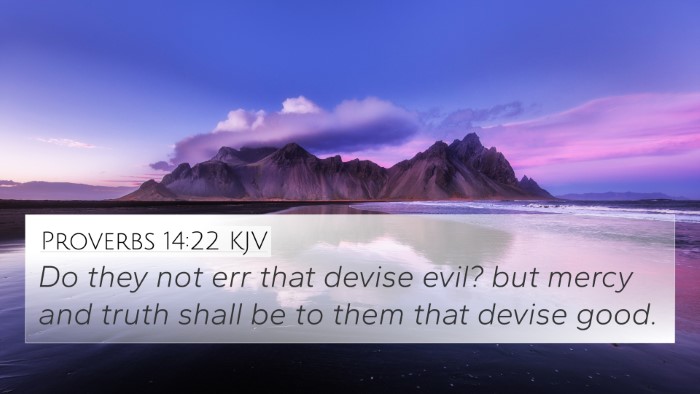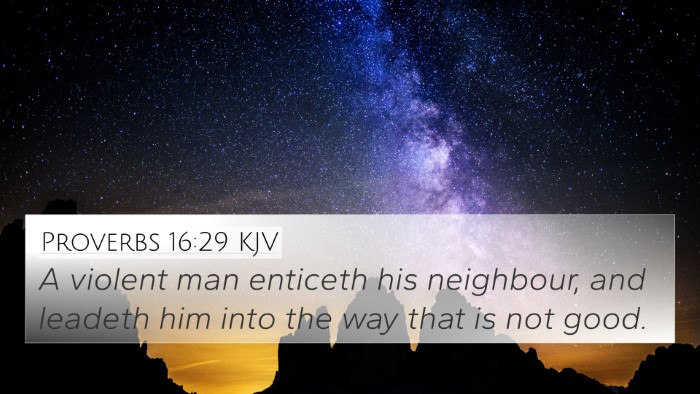Understanding Proverbs 3:29
Proverbs 3:29 states: "Do not devise evil against your neighbor, for he dwells by you for safety's sake." This verse encapsulates essential wisdom about interpersonal relationships, mutual respect, and the moral obligation towards our neighbors.
Summary of Insights
The interpretations of Proverbs 3:29 by various public domain commentators underline the significance of harmony and trust within communities.
-
Matthew Henry Commentary:
Henry emphasizes the importance of community ethics, urging believers to refrain from wicked intentions towards those living nearby. Such actions breach the trust that forms the basis of neighborly relations. He highlights that good neighborliness contributes to societal peace and safety.
-
Albert Barnes Commentary:
Barnes points out that the verse serves as a warning against plotting evil against a neighbor, as it disrupts the protective social fabric. It reiterates that living in proximity requires a responsibility for mutual well-being, endorsing the idea that such malevolent schemes can lead to societal downfall.
-
Adam Clarke Commentary:
Clarke interprets this verse as an encouragement towards good deeds, claiming that safe cohabitation must be underpinned by a commitment to righteousness. He stresses that neighborly love is cornerstone to societal stability, and harmful thoughts can corrupt the peaceful existence intended by God.
Related Bible Cross-References
Proverbs 3:29 correlates with several other scripture verses, enhancing its meaning through thematic connections:
- Leviticus 19:18: "You shall not take vengeance or bear a grudge against the sons of your own people, but you shall love your neighbor as yourself."
- Luke 10:27: "And he answered, ‘You shall love the Lord your God with all your heart and with all your soul and with all your strength and with all your mind, and your neighbor as yourself.’"
- Romans 13:10: "Love does no wrong to a neighbor; therefore love is the fulfilling of the law."
- Matthew 5:43: "You have heard that it was said, ‘You shall love your neighbor and hate your enemy.’"
- Proverbs 24:28: "Be not a witness against your neighbor without cause, and do not deceive with your lips."
- Ephesians 4:31-32: "Let all bitterness and wrath and anger and clamor and slander be put away from you, along with all malice. Be kind to one another, tenderhearted, forgiving one another, as God in Christ forgave you."
- James 4:11: "Do not speak evil against one another, brothers. The one who speaks against a brother or judges his brother, speaks evil against the law and judges the law."
Thematic Connections
This verse is not just an isolated piece of advice but fits within a broader biblical framework concerning the treatment of others. Each reference reinforces the overall theme of love and righteousness:
- Linking Biblical Texts: Proverbs 3:29 can be seen as a foundation that links the ideas of neighborly love across the Testaments.
- Comparative Bible Verse Analysis: Analyzing Proverbs 3:29 alongside the aforementioned verses illustrates a consistent biblical theme of caution against malice towards others.
- Tools for Bible Cross-Referencing: Utilizing a Bible concordance or cross-reference guide can easily uncover these connections, enhancing one's understanding of biblical principles.
Inter-Biblical Dialogues
Exploring the connections between various scriptures enriches our interpretation of Proverbs 3:29.
- Identifying Connections: The relationship between Old Testament laws in Leviticus and New Testament love commands presents a seamless narrative on moral obligations.
- Cross-Referencing Psalms with New Testament Teachings: Psalms highlight the virtue of living harmoniously, complementing the New Testament emphasis on love.
Conclusion
Proverbs 3:29 serves as a timeless reminder of the importance of living with integrity towards one’s neighbors. By understanding this verse through extensive commentary and cross-referencing it with related scriptures, believers can uphold the values of compassion and justice that form the backbone of a righteous community. This multifaceted approach not only fosters a deeper understanding of the text but also enhances spiritual growth and ethical living.
